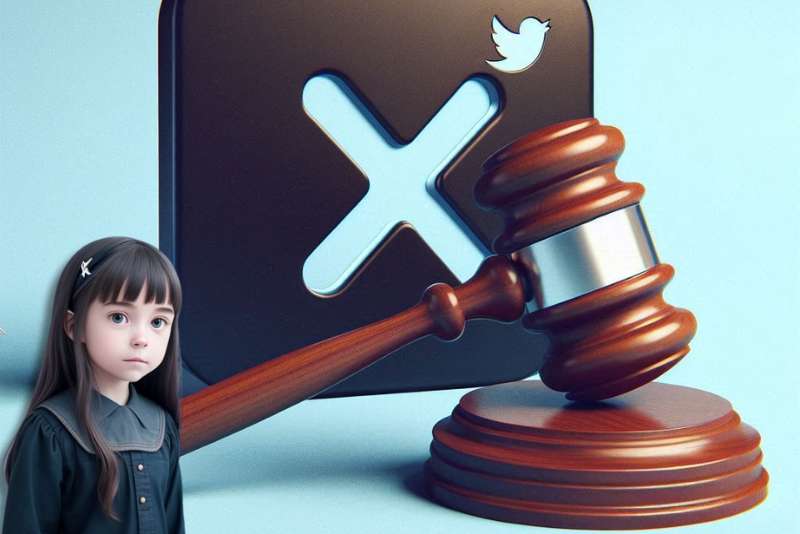
Gangtokian News Desk: An Australian federal court has ruled against social media platform X, formerly Twitter, upholding a substantial A$610,500 ($418,000) fine imposed by the eSafety Commissioner. The court’s decision stems from X’s failure to adequately respond to an inquiry about its actions to combat child abuse content.
Background of the Case
The legal dispute began when Australia’s eSafety Commissioner levied the fine after X did not provide sufficient details on its strategies to address child sexual exploitation materials circulating on the platform. X contested the fine, arguing that due to its merger into a new corporate entity controlled by Elon Musk, it was not obligated to respond to the regulator’s queries. However, the Federal Court of Australia dismissed this defense, ruling that the company was indeed required to comply with the eSafety Commissioner’s request.
As part of the ruling, the court ordered X to pay the fine in full and cover the legal costs associated with the case.
Escalating Regulatory Pressure on Tech Firms
This ruling marks a significant step in Australia’s broader push to hold global tech companies accountable for user safety and content moderation. The eSafety Commissioner, Julie Inman Grant, expressed her satisfaction with the court’s decision. “This outcome underscores the importance of transparency and compliance,” she said, warning that a ruling in X’s favor could have opened the door for foreign companies to evade Australian regulations through corporate restructuring.
This is not the first time Australia has taken steps to pressure X over its content management. Recently, the country demanded the removal of a violent video of a terrorist attack and has proposed stricter age limits for teenagers using social media. The government is also working on legislation aimed at curbing digital misinformation, signaling a more aggressive stance on regulating online platforms.
Proposed Misinformation Law and X’s Pushback
In a related development, Australia is considering a new law that would impose heavy penalties on social media companies that fail to address misinformation and disinformation on their platforms. The law, modeled after the European Union’s Digital Services Act (DSA), could result in fines of up to 5% of a company’s annual global revenue.
This legislative push has sparked strong opposition from Elon Musk. The billionaire recently criticized Australian lawmakers, referring to them as “fascists” for proposing such measures. Musk’s comments reflect broader concerns from tech companies over the potential impact of global regulatory trends on their business models.
Other Legal Disputes and Future Challenges
The child safety case is not the only point of contention between X and Australian authorities. Earlier this year, the eSafety Commissioner ordered the platform to remove footage of an Australian bishop being attacked during a sermon. X challenged this order, arguing that one country’s regulator should not have the power to dictate what is visible on a global platform.
The case highlights Australia’s increasing pressure on tech firms to better police online content. In addition to this fine, the country has taken other actions against X, including:
- Attempting to remove a violent video of a terrorist attack.
- Proposing age limits for teenagers using social media.
- Introducing legislation to combat digital misinformation.
Internationally, X has also drawn scrutiny from the European Union. Since December 2023, the EU has been investigating the platform’s role in spreading disinformation, adding to the growing list of regulatory challenges X faces under Musk’s ownership.
X’s Silence and the Road Ahead
As of the court’s ruling, X has remained silent, declining to comment on the fine or the broader regulatory issues. However, critics have highlighted the platform’s apparent shift under Musk, with some arguing that his focus on fostering controversial content could clash with the tightening regulations aimed at online safety.
Moving forward, the case highlights the increasing tension between global tech platforms and government regulators. With more countries considering tougher laws on content moderation and misinformation, X may find itself at the forefront of a global reckoning over how to balance free speech with user safety.
Gangtokian Web Team, 04/05/2024
















































